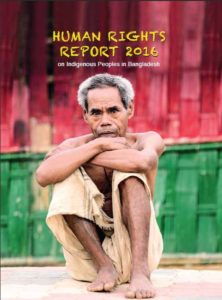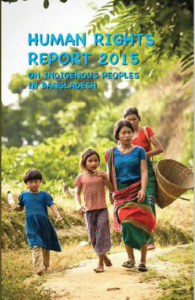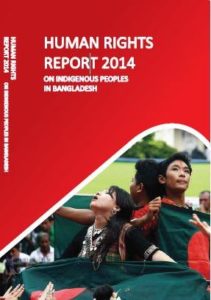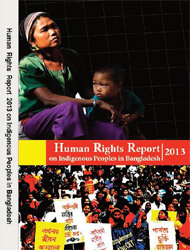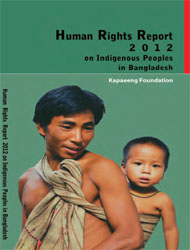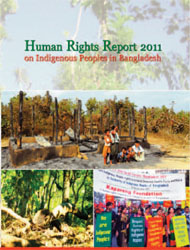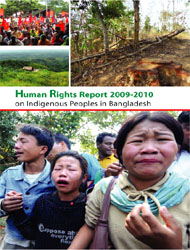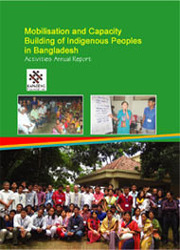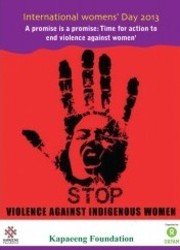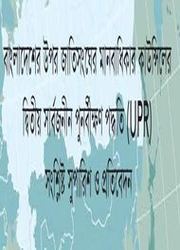Eviction notice to the Khasi people of Nahar Punji declared illegal, but intimidation against them by fabricated case continues
On 26 July 2016 Divisional Commissioner of Sylhet Division declared the eviction notice issued by the Deputy Commissioner illegal. But intimidation upon the Khasi villagers by fabricated cases filed by the land grabbers continues. It is to be mentioned that on 30 May 2016, the Khasi people of Nahar Punji of Sreemangal upazila under Moulavibazar districtreceived a notice from Moulavibazar district administration that they have to leave their ancestral home by the 12th of June 2016. The notice alleged that Khasi people have been illegally farming pan (betel leaf) by illegally occupying government land. Following that eviction notice, the community, media, civil society and National Human Rights Commission (NHRC) reacted immediately and demanded to revoke of the notice.
It is mentionable that there are more than 700 indigenous Khasi and Garo families living in bordering Nahar-1 Khasi Punji, a land of 200 acres and Nahar-2 Khasi Punji, a land of 250 acres, for decades. Khasi people have been living in this land for generations and cultivating betel leaf in traditional way. Their livelihood totally depends on betel leaf cultivation. If any initiative would not take following the verdict of Divisional Commissioner, the indigenous people will lose their land and evict from their ancestral land forever.
Since the government of Bangladesh does not respect traditional land ownership system of the Khasi people, after the initiation of land settlement by the State, the Khasi people settled for long-leasing systems which allow them to use the allotted forest land for a period of 99 years. In accordance with their lease agreements, the Khasi villagers of Nahar (Aslom) Punji have been paying regular taxes to the government treasury and Union Council, for their lands. However, the tea estate authority is now trying to occupy the traditional land of Khasi people in the name of expansion of the area of the tea plantation.
Khasi people of Nahar Punji set their footprints and started living on the land long before Nahar Tea Estate was set up. The owner of Nahar Tea Estate established a lease agreement of the land from government and set up the tea estate near Nahar Khasi Punji in 1973. However, over past few years, the tea estate authority has been claiming that the land of Khasi people falls under the land of tea estate. Hence, with intention to expand the tea estate, the tea estate authority has been conspiring to evict the indigenous Khasi people to grab their land using different means. In one instance, the tea garden authority and workers seriously attacked the community on 30 March 2016 which left more than 20 people including 13 Khasi women seriously injured[i]. The villagers suspect that the recently issued government notice may have connection with the intent of Nahar tea estate authority.
The same thing has happened back in 2014. On 30 May 2014, the Bengali land grabbers attacked on 79 Khasi families at Nahar Punji-1, a hilltop village of the indigenous Khasi people with an aim to grabbing land that belonging to the Khasi people. Following the attack, the tea state authority insisted tea workers to filed a false case against more than 10 Khasi people including their traditional leader Mr. Dibarmin. The case is still under trial in the court and Mr. Dibarmin is passing insecurity life.
It is also mentionable that after issuing the notice by Deputy Commissioner, local communities, CSO and NGOs and other stakeholders tried to convince district administration to revoke the decision of eviction notice by appealing to the office of the Divisional Commissioner. There was a hearing session on 26 July 2016 in the divisional court following the appeal by the Khasi people. After the hearing, the Divisional Commissioner declared the notice issued by the Deputy Commissioner illegal!Moreover, after issuing the notice, the district administration came to know that a court case was pending on that said land between indigenous Khasi people and Tea Estate authority. That is why they did not take any action against the Khasi people.Now the district administration may appeal against this verdict. However, so far, community is happy with this decision of the Divisional Commissioner. The community is planning to file writ petition in the High Court if the Divisional Commissioner verdict fails to protect Khasi people’s land.



